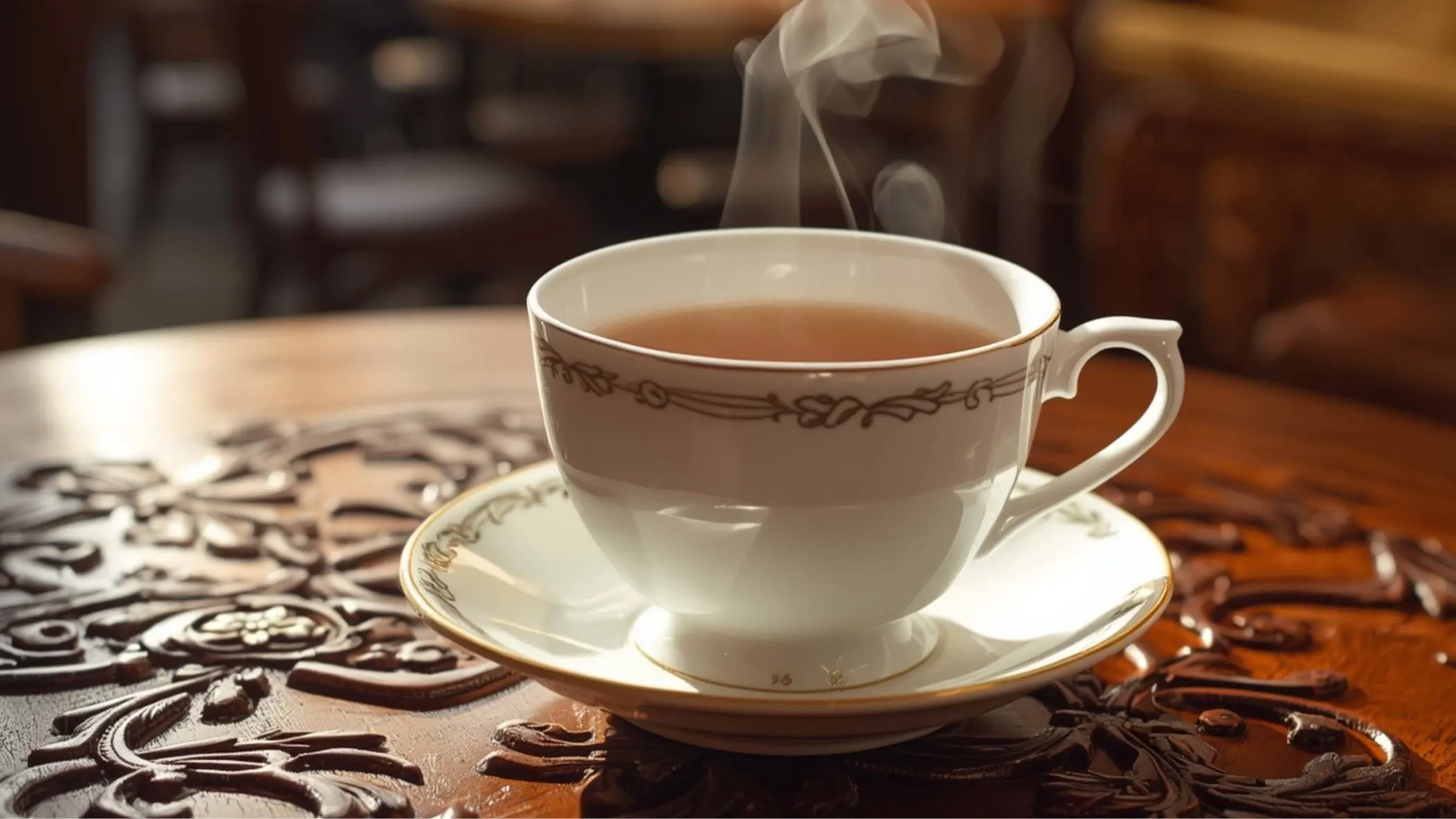Tea in France is more than just a beverage; it is a rich tapestry woven into the country’s history, culture, and daily life.
From its introduction in the 17th century to its current status as a symbol of refinement, French tea offers a unique perspective on this ancient drink.
Introduction of Tea to France:
Tea made its debut in France during the reign of Louis XIII in the early 1600s. While the Dutch and Portuguese were the primary European conduits for tea from Asia, it was the French who quickly embraced the beverage. Jules Mazarin, the chief minister to Louis XIV, is often credited with popularizing tea at the French court.
He believed in its medicinal properties, which spurred its adoption among the aristocracy. Interestingly, tea was not only consumed as a drink but was also used as a smoking plant, salad herb, or ointment ingredient during this period. Wikipedia
The Evolution of Tea Consumption in France:
During the French Revolution, tea consumption declined as it was associated with luxury and the aristocracy. However, in the 19th century, a revival occurred, particularly during the Second Empire under Napoleon III. Empress Eugénie de Montijo established a private tea room, drawing inspiration from the literary salons of the previous century. This period marked the beginning of tea becoming a social activity in France. Wikipedia
In the 20th century, the fascination with the Far East, known as Japonisme, further fueled the popularity of tea in French culture. Tea salons became fashionable, and the French began to appreciate tea not just for its taste but also for the rituals and ambiance associated with its consumption. Wikipedia
French Tea Culture Today:
Today, France boasts a vibrant tea culture. Major tea houses like Mariage Frères, Kusmi Tea, and Dammann Frères have established themselves as global brands, offering a wide array of teas and blends. These establishments not only sell tea but also provide an experience, often featuring elegant tea rooms and offering tea-related accessories. Wikipedia
The French have a unique approach to tea consumption. While tea is enjoyed throughout the day, there is a particular emphasis on the afternoon tea ritual, known as “le goûter.” This tradition involves a light meal, often accompanied by tea, pastries, and sometimes chocolate. It is a time for relaxation and socialization, reflecting the French appreciation for culinary pleasures. chezalicecafe.com
The Science Behind French Tea:
The French approach to tea extends beyond culture into the realm of science. French tea producers are known for their innovative techniques in tea processing and flavor enhancement. For instance, companies like Mariage Frères and Kusmi Tea employ advanced methods to blend and flavor teas, creating unique profiles that appeal to discerning palates. ScienceDirect
One notable aspect of French tea is the emphasis on quality and authenticity. French tea houses often source their leaves directly from renowned tea regions, ensuring that each cup offers a genuine taste experience. This commitment to quality is reflected in the meticulous care taken during processing, from withering and rolling to oxidation and drying. Wikipedia
The Health Benefits of Tea in France:
Tea’s health benefits are well-recognized in France, aligning with the country’s focus on wellness and natural remedies. Scientific studies have highlighted various health advantages associated with tea consumption, including:
-
Antioxidant Properties: Tea, especially green and white varieties, is rich in antioxidants like catechins, which help combat oxidative stress and may reduce the risk of chronic diseases. ScienceDirect
-
Cardiovascular Health: Regular tea consumption has been linked to improved heart health, including reduced blood pressure and cholesterol levels. ScienceDirect
-
Metabolic Benefits: Certain teas, such as green tea, may aid in weight management by enhancing fat oxidation and boosting metabolism. rijournals.com
These health benefits have contributed to the growing popularity of tea in France, with many individuals incorporating it into their daily routines for its therapeutic properties.
Read Next: Turkish Tea | More Than a Drink
The Future of Tea in France:
The future of tea in France looks promising, with a continued emphasis on quality, innovation, and cultural appreciation. As global interest in tea grows, French tea houses are well-positioned to lead in offering unique blends and experiences that cater to diverse tastes.
The fusion of tradition and modernity in French tea culture ensures that this beverage will remain a cherished part of French life for generations to come.
Final:
French tea is a testament to the country’s rich history, cultural sophistication, and scientific innovation. From its aristocratic beginnings to its current status as a symbol of refinement, tea in France offers a unique perspective on this beloved beverage.
Whether enjoyed in a luxurious tea salon or a cozy home setting, French tea continues to captivate with its elegance and depth.
References:
-
Wikipedia contributors. (2025). Tea in France. Wikipedia. Retrieved from https://en.wikipedia.org/wiki/Tea_in_France
-
Chez Alice Cafe. (2025). French Tea Time Experience. Retrieved from https://www.chezalicecafe.com/pdfs/french_tea_time.pdf
-
ScienceDirect. (2025). Processing technologies for manufacturing tea beverages: From traditional methods to modern innovations. Retrieved from https://www.sciencedirect.com/science/article/pii/S0924224421005744
-
ScienceDirect. (2025). Molecular mechanisms underlying health benefits of tea compounds. Retrieved from https://www.sciencedirect.com/science/article/pii/S0891584921003658
-
ScienceDirect. (2025). Tea in cardiovascular health and disease: a critical appraisal of the evidence. Retrieved from https://www.sciencedirect.com/science/article/pii/S2213453021001622
-
ScienceDirect. (2025). Tea Consumption and Human Health: A Review of Benefits and Impact on Chronic Diseases. Retrieved from https://rijournals.com/wp-content/uploads/2024/10/RIJPP-33-P11.pdf
-
O-Cha. (2025). Tea in France / All about tea. Culture, Health Benefit, Business etc. Retrieved from https://www.o-cha.net/english/teacha/culture/france.html
-
Tea & Coffee Culture in France: From Philosophers to Beanji. (2025). A Brewed Legacy of Elegance and Expression. Retrieved from https://teaandcoffeoftheworld.blogspot.com/2025/06/tea-coffee-culture-in-france-from.html
-
TeaTime Magazine. (2023). Tea in France—Ooh, La La! February 17, 2023. Retrieved from https://teatimemagazine.com/tea-france-ooh-la-la/
-
Stories About Tea. (2023). The Story Of French Tea Culture. June 23, 2023. Retrieved from https://www.storiesabouttea.com/the-story-of-french-tea-culture/
-
1xMarketing. (2024). Tea Culture in France: History, Sights, and Behind the Scenes of French Tea. October 6, 2023. Retrieved from https://1xmarketing.com/news/en/world-marketing-diary-241130090658/
-
Tea in France. (2025). Wikipedia. Retrieved from https://en.wikipedia.org/wiki/Tea_in_France

